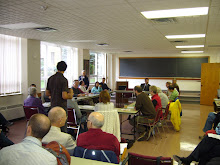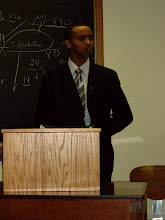Grace in a Place
The Sacramental Facilitation of Physical Access for People with Disabilities in Ecclesial Spaces
by Michael Alexander Walker, M.T.S., Th.M. Th.D. Candidate (Knox College)
 Christians with disabilities often find ecclesial spaces inhospitable, because such places are created with only normalized body-types in mind. For instance, steps and hard surfaces can hinder or constrain people with mobility issues, while hymnals lack Braille and large print for those who are blind or visually impaired. Nonetheless, as a Christian constructive theologian with cerebral palsy, I assert that these physical conditions can change. Baptism and Holy Communion can facilitate dialogue about physical access to ecclesial spaces for people with disabilities: they allow Christians with various levels of ability, conversing passionately across difference, to explore the capacities of people with disabilities to receive dignity from the spaces that we inhabit, and to give dignity back to our communities using our gifts.
Christians with disabilities often find ecclesial spaces inhospitable, because such places are created with only normalized body-types in mind. For instance, steps and hard surfaces can hinder or constrain people with mobility issues, while hymnals lack Braille and large print for those who are blind or visually impaired. Nonetheless, as a Christian constructive theologian with cerebral palsy, I assert that these physical conditions can change. Baptism and Holy Communion can facilitate dialogue about physical access to ecclesial spaces for people with disabilities: they allow Christians with various levels of ability, conversing passionately across difference, to explore the capacities of people with disabilities to receive dignity from the spaces that we inhabit, and to give dignity back to our communities using our gifts.The sacraments can create this space for material access. Because baptism represents human equality in Christ (see Galatians 3:28), it can attest the importance of universal-design principles for church sanctuaries. All people, particularly people with disabilities, possess the right to buildings with ramps, non-slip flooring, and adequate lighting. Furthermore, Holy Communion entails vulnerability to and solidarity with the plight of people who are oppressed, those who suffer unduly in the world. By pointing out the needs of those who hunger or lack clothing or shelter, Communion demands that Christians provide all users of their spaces with satisfactory food, heat, and light. God’s love can flourish in accessible ecclesial spaces where people with and without disabilities can feel communal and transformative acceptance.






